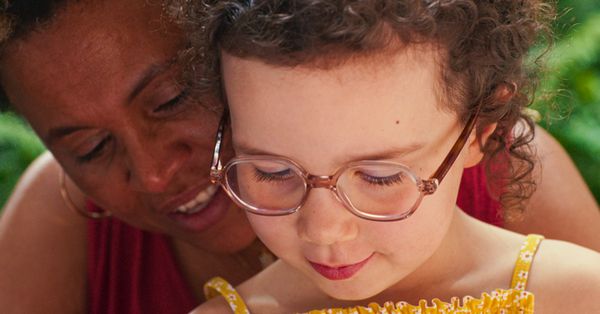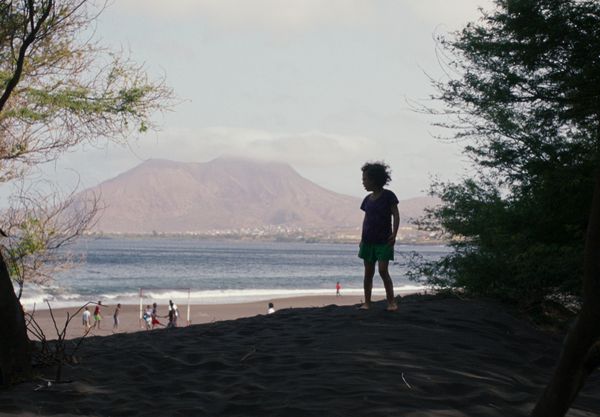 |
| Ilça Moreno Zego and Louise Mauroy-Panzani in Àma Gloria. Marie Amachoukeli: 'The link between a nanny and her child is often stronger than the link between a mother and her child' Photo: UniFrance |
Amachoukeli, who is French of Georgian extraction, had just finished Party Girl in 2014 (co-directed and written with Claire Burger and Samuel Theis) which won the Camera d’Or prize for a first film at the Cannes Film Festival. It tells of a 60-year-old woman who provides company for men at nightclubs on the French-German border and who decides to leave the street life behind her by marrying a regular customer.
Rather than seize the moment she explained: “I wanted to wait a while, because I’d learned that making films in the current economic climate is really difficult. So I only wanted to make another film if it was really close to my heart and felt quite personal. I had received the Camera d’Or so could not complain but my craft was really as a scriptwriter and a script consultant. I had worked on loads of French films in that capacity.
 |
| Àma Gloria director Marie Amachoukeli: 'I wanted to explore the relationship between a child and someone who’s paid to look after her' Photo: UniFrance |
By chance, Amachoukeli lived in an apartment opposite a park where nannies and the children they looked after gathered on a daily basis. “I was curious because no-one really knew who these women were, but the link between a nanny and her child is often stronger than the link between a mother and her child. I wanted to explore the kind of love that exists between them. It is a complex situation which nobody really talks about. And there is a whole linguistic and social scenario between them.”
After conversations with the women in the park and based on her own experiences she wrote the script viewed entirely from the child Cleo’s point of view. She is played by six-year-old Louise Mauroy-Panzani whom she found through her casting director who was told to avoid looking at children who had an agent and also to avoid parents who put their off-spring up for casting because “they frighten me.”
She explained that she was raised herself by someone who looked after her. “She wasn’t a nanny exactly but the caretaker of the building where I lived. I was forever in her little office, with her own children, and so on. One day, she returned home to live in Portugal and that was the biggest shock of my childhood. I refused to say goodbye to her on the day. There was something in that totally crazy love I felt for her that I wanted to drill down into. I wanted to explore the relationship between a child and someone who’s paid to look after her. Is it for the money? Out of love? Both? And I wanted to focus on how all that plays out, in one way or another.”
 |
| Marie Amachoukeli: 'I wanted to reproduce that effect, sliding into animated painting, drawings and the imaginary' Photo: UniFrance |
She worked with illustrator Pierre-Emmanuel Lyet to use brush-stroke animation sequences to link in with Cleo’s inner thoughts although the protracted sequences delayed the editing process and she had to do the initial cut without them and simply trust they would work.
She cites Mary Poppins as an influence. “It was the first film I ever saw. I recalled where it goes from the real world to that of Mary Poppins. She added: “I wanted to reproduce that effect, sliding into animated painting, drawings and the imaginary. I thought it was a good fit with the world of childhood and with the way the child’s subconscious expresses itself through moments of bright colour rather than words.”
Buoyed by the critical reception for Àma Gloria which bowed at Cannes Critics’ Week last year, Amachoukeli is not exactly raring to repeat the film-making experience behind the camera. She said matter of factly: “I see my main job as still being a writer and consulting on films. But you can bet that if I have something worth saying, I will direct again.”
Àma Gloria is released in the UK and Ireland by BFI Distribution from 14 June and on BFI Player from 22 July.





















